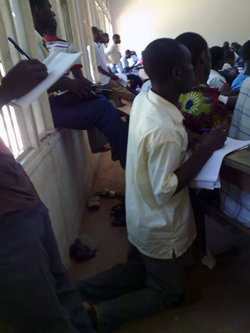African Universities: Creating True Researchers or “Native Informers” to NGOs?
In a recent speech addressing the Makerere Institute of Social Research in Uganda, Mahmood Mamdani described the state of academic research and higher education in Africa as dominated by a “corrosive culture of consultancy.”
Today, intellectual life in universities has been reduced to bare-bones classroom activity. Extra-curricular seminars and workshops have migrated to hotels. Workshop attendance goes with transport allowances and per diem. All this is part of a larger process, the NGO-ization of the university. Academic papers have turned into corporate-style power point presentations. Academics read less and less. A chorus of buzz words have taken the place of lively debates…
What’s the difference between academic research and consultancy-driven research? Mamdani, who spent decades teaching at universities in South Africa, Tanzania and Uganda before moving to Columbia University, defines research for a consultant as seeking answers to problems posed and defined by a client. But university research, properly understood, requires formulating the problem itself.
His example of how this works in practice is an interesting one. In 2007, the Bill and Melinda Gates Foundation shifted global health spending priorities towards their research question: How to eradicate malaria? But if malaria can’t be eradicated, as a team of scientists from France and Gabon now believe, then researchers have spent four years and hundreds of millions of dollars answering the wrong question.
The cumulative effect of this model is to “devalue original research or intellectual production in Africa.”
The global market tends to relegate Africa to providing raw material (“data”) to outside academics who process it and then re-export their theories back to Africa. Research proposals are increasingly descriptive accounts of data collection and the methods used to collate data, collaboration is reduced to assistance, and there is a general impoverishment of theory and debate.
In my view, the proliferation of “short courses” on methodology that aim to teach students and academic staff quantitative methods necessary to gathering and processing empirical data are ushering a new generation of native informers.
Mamdani, who is now director of the Makerere Institute of Social Research in addition to his professorship at Columbia, seeks to counter the spread of consultancy culture “through an intellectual environment strong enough to sustain a meaningful intellectual culture.”
“To my knowledge,” he said, “there is no model for this on the African continent today. It is something we will have to create.”
 From Aid to Equality
From Aid to Equality

